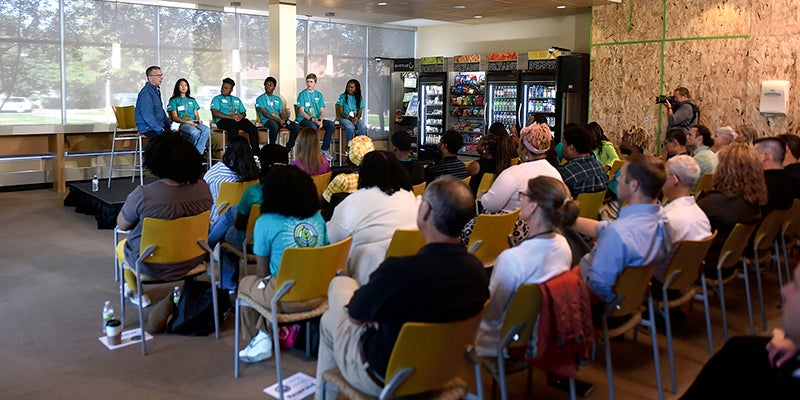New year, new optimism
Published 7:01 am Monday, January 6, 2014

Much business growth is planned for 2014, including expansions for The Hormel Institute and Hy-Vee, home improvement store Runnings plans to open in the K-mart building (above), and myriad small businesses will have an impact on the local economy. — Herald file photo
1. The economy is trending up; businesses choose Austin, but underemployment, poverty still persist
Austin’s economy, along with the southeastern Minnesota and the state in general, have been relatively sheltered from the worst of the so-called 2007 to 2009 “Great Recession.” But that doesn’t mean folks didn’t feel its effects, as Austin’s unemployment rate hit 8 percent in March 2009.
The local economy is most certainly on the rebound, however, and 2014 could be even better, as unemployment hit 3.7 percent in November 2013, a seven-year low, the housing market is on the upswing, and more businesses are choosing Austin as its population grows.
Austin does suffer with underemployment and high poverty rates, as many blue collar workers call it home — the Hormel Foods plant and Quality Pork Processors have about 3,100 employees between them — and about 19 percent of Austin residents live in poverty.
But business is good for many, and three of the big-scale changes for 2014 include The Hormel Institute’s 27-million expansion (which should bring about 120 high-paying jobs in the years to come), the addition of home improvement store Runnings, which should add about 50 jobs when it opens this spring, and Hy-Vee’s $7- $10-million expansion, which should add about 125 to 150 jobs.
Myriad smaller changes should also have a positive effect on the economy, with stores like Sun Tan City, AT&T retailer Pro Cellular and Snap Fitness all announcing they will choose Austin in 2014. Also, Kwik Trip is likely buying Watts Cookin’ and building its own $5-million truck stop, while hoping to attract another sit-down restaurant and hotel to its property.
There will be other businesses that close in 2014, but the economy is trending up.
“Change really drives our economy, whether we’re going to grow or decline,” Bill Blazar, senior vice president of public affairs and business development with the state Chamber, told Austin business leaders in December.
Business is growing a little better in Austin than in the rest of the state, but unless a few changes occur, the Minnesota Chamber of Commerce believes the economy could slow. Austin is leading the pack, however, as more Austin businesses have shown confidence in increased sales and profitability than in other areas of southern Minnesota. In addition, Austin businesses are expanding more in the community than elsewhere in the state, an encouraging sign, according to Blazar.
“Austin pretty much leads the way in terms of sales and profitability,” he said.
Yet many economists say the global economy will likely grow more than the U.S. over the next few years, which means more businesses need to adopt export strategies. Blazar highlighted Hormel Foods Corp.’s acquisition of Skippy peanut butter and subsequent plans for an international sales campaign as a good example of exporting goods from Minnesota businesses.
Blazar also highlighted benefits and drawbacks to doing business in Minnesota. While many businesses tout Minnesota’s education, electric reliability and workforce quality in southeastern Minnesota, many businesses call state taxes, health care costs, workers’ compensation rates, and insurance requirements as detriments to attracting workers.
“Business is improving, business owners are more optimistic, profits are rising slowly, and people want to hire, but they’re reluctant to hire, at least in a big way,” said Sandy Forstner, executive director of the Austin Area Chamber of Commerce.
Adam Harringa, Jason Schoonover, Matt Peterson, Trey Mewes and Rocky Hulne contributed to this article





